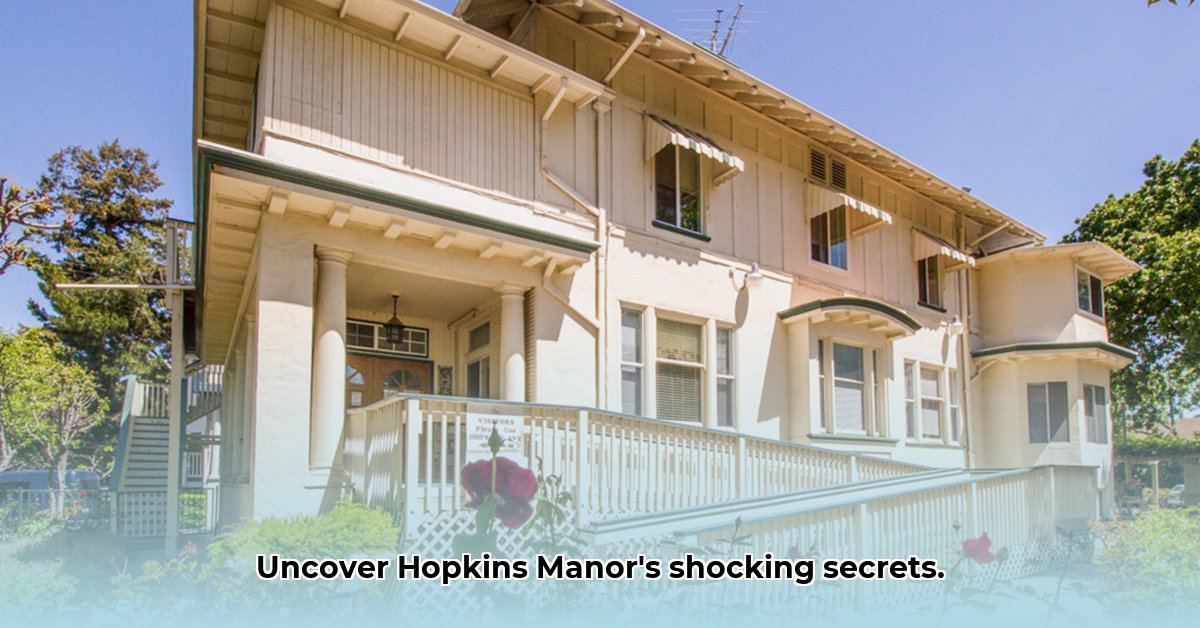
Hopkins Manor, located in North Providence, Rhode Island, provides care for senior citizens. This report offers a comprehensive assessment of the facility based on available data, aiming to provide potential residents and their families with the information needed to make informed decisions. For additional senior care resources in Rhode Island, see this helpful website.
Medicare Rating and Overview
Hopkins Manor holds a three-star rating from Medicare. This rating combines several factors: health inspections, staffing levels, and quality measures. A three-star rating indicates performance in the mid-range – neither exceptionally good nor notably poor. While the facility may offer amenities such as arts and crafts rooms or fitness centers, it's crucial to assess whether these amenities compensate for any shortcomings in other areas of care. The specific components of the three-star rating require further examination.
Resident Demographics and Health Conditions
The average resident age at Hopkins Manor is approximately 79 years old. A substantial majority (over half) of residents grapple with chronic conditions, including heart failure, diabetes, and Alzheimer's disease, indicating a population with significant and complex care needs. Critically, data regarding racial and ethnic diversity among residents is unavailable, hindering a complete understanding of the facility's inclusivity and ability to serve a diverse population. This lack of data raises concerns about potential disparities in care.
Inspection Reports and Deficiencies
Health and fire safety inspections conducted in 2018 revealed deficiencies in medication management and fire safety protocols. These shortcomings raise serious concerns about resident safety and well-being. Medication errors can have dire consequences, while fire safety deficiencies pose a significant risk. A detailed analysis of the specific deficiencies and the facility's corrective actions is crucial for evaluating the current safety level. The potential impact on resident health needs further scrutiny.
Financial Data (2016)
Medicare reimbursed Hopkins Manor $1,609,855 in 2016 for the care of 78 residents. While a substantial sum, this figure alone lacks sufficient context to fully evaluate the facility's financial stability or the efficiency of its operations. Further financial information is needed to understand whether this spending correlates with high costs, extensive services, or potential issues. Transparency in financial reporting is essential for assessing the quality of care and accountability.
Analysis and Interpretation
Hopkins Manor presents a mixed picture. While a convenient location and the presence of resident amenities suggest some positive aspects, serious concerns arise from the identified deficiencies in medication management and fire safety. The lack of comprehensive financial and demographic data further limits a full evaluation. The discrepancies between the seemingly average Medicare rating and the serious inspection findings highlight the need for a more thorough assessment.
Actionable Insights
Several key stakeholders must take action to improve resident care and accountability:
Hopkins Manor Administration: Immediately address and correct all identified deficiencies, implementing robust quality improvement programs, staff training, and regular safety audits. A detailed plan for addressing the medication and fire safety issues is crucial.
Medicare/Medicaid: Increase inspection frequency and thoroughness, conducting more detailed reviews of financial records to ensure transparency and accountability. Strengthening oversight can prevent similar issues at other facilities.
Resident Families: Actively engage with facility staff, request detailed care plans, and thoroughly review inspection reports. Proactive engagement empowers families to advocate for their loved ones' well-being.
Regulatory Bodies: Strengthen regulations to enhance safety and quality standards, ensuring consistent enforcement and accountability. This will create a stronger framework for all senior care facilities.
Conclusion
This report provides a balanced overview of Hopkins Manor, highlighting both positive and concerning aspects. The facility's three-star Medicare rating, while seemingly acceptable, is overshadowed by serious deficiencies uncovered in inspections. The lack of transparent financial and demographic data further reinforces the need for increased transparency and accountability. Continuous quality improvement, coupled with rigorous oversight from regulatory bodies, is crucial for ensuring the safety and well-being of residents in all senior care facilities.